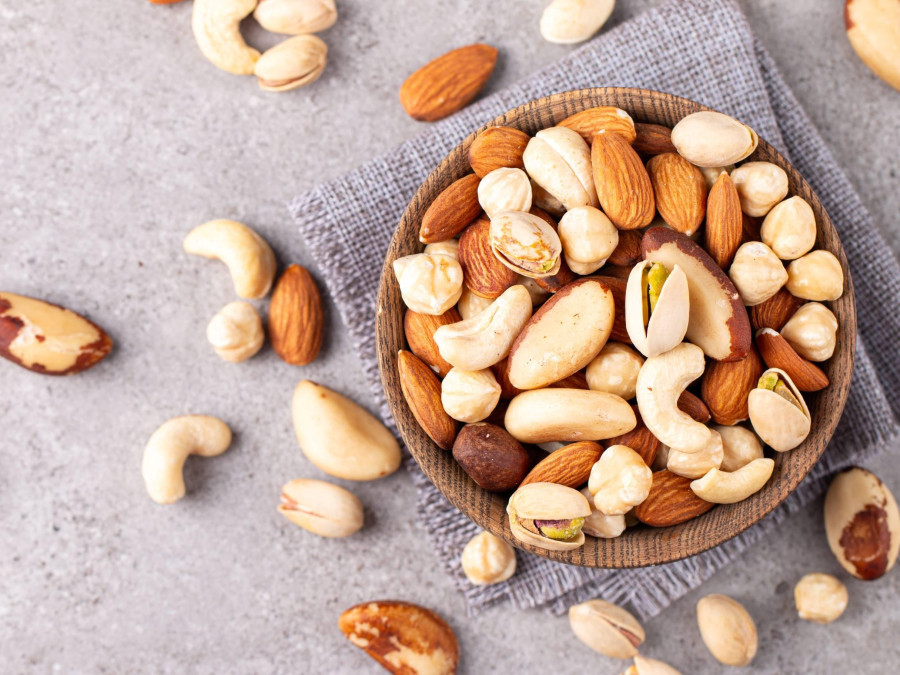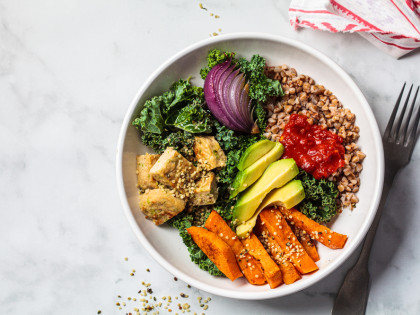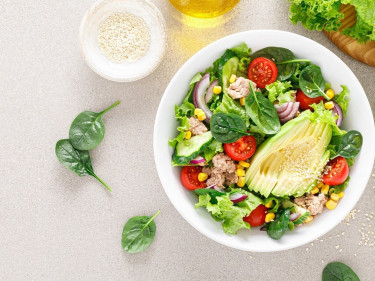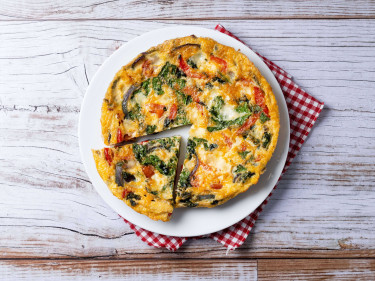October 22nd is National Nut Day - and we’re going nuts for good reason! Just 30g of nuts a day (that’s about a handful) can do wonders for your health. Plus, they’re tasty, affordable and extremely versatile!
Why you should include nuts every day!
A daily serve of nuts can:
- Support heart health - including a handful of nuts each day is associated with a 21% lower risk of cardiovascular disease, including coronary heart disease, stroke, and atrial fibrillation.
- Boost brain function - nuts are rich in healthy fats and antioxidants that support cognitive health
and may help prevent dementia.
- Support weight loss - yes, really! Thanks to their satisfying combo of plant protein, fibre and healthy fats, including nuts regularly can help improve satiety and support weight management long term.
- Provide essential nutrients like magnesium, vitamin E, selenium and antioxidants.
- Add crunch and texture - perfect in sweet or savoury dishes, as a snack, in cooking, nut butters, or sprinkled on top of salads and yogurt.
- Be budget-friendly - a 30g handful of mixed nuts costs around $1 per serve, making them a smart snack choice compared to many packaged options.
- Last for months! Buy in bulk and store in the fridge for up to 4 months, or in the freezer for up to 6 months to keep them fresh.
Raw vs roasted, whole vs. ground - does form matter?
Nuts are great in all forms! And here’s a fun fact: we don’t absorb all the energy (kilojoules) in nuts. That’s because some of the fats remain trapped inside their cell walls (especially in whole and raw nuts) making the fats less available for absorption. A recent review exploring the metabolisable energy of nuts suggests that previous calculations may significantly overestimate their energy content.
- Whole, raw nuts tend to have the lowest metabolisable energy, due to their cell wall remaining intact. The research suggests that the energy absorbed from whole nuts may be up to 26% less than what nutrition labels might say.
- Roasted nuts release slightly more energy than raw nuts, but still significantly less than expected.
- Nut butters and nut flours have a slightly higher metabolisable energy compared to whole nuts. This is because the grinding process breaks down more cell walls. Their energy content appears similar to what is displayed on nutrition labels.
No matter the form, nuts are nutrient-dense, satisfying, and associated with better health. So, enjoy them your way - raw, roasted, chopped, or spread!
For children under the age of 5, or people with a chewing or swallowing difficulty (dysphagia), always avoid whole nuts due to the risk of choking.
Learn more about the research into the metabolisable energy of nuts
Try some of these easy ways to add nuts to your day
- Sprinkle chopped nuts over yogurt or oats
- Make your own nutty granola
- Add cashews to a stir-fry for crunch and creaminess
- Use peanut butter in smoothies
- Toss chopped nuts into salads for an extra crunch texture: try our NMNT salad crunch or healthy dukkha recipe
- Portion 30g (or a handful) of nuts into containers for grab-and-go healthy snacks or make your own trail mix
Looking for more on nuts?
Visit the Nuts for Life website
Download the Nuts for Life FREE e-recipe book for 5 quick and easy budget-wise weekday meals, and 3 bonus sweet treats - all featuring nuts
Listen to the Nutrition Science Bites conversation: Are nuts good for you?
Listen to the Nutrition Science Bites conversation: Does eating nuts make you gain weight? With Dr Cassandra Nikodijevic
Find new recipes using the No Money No Time ‘nuts and seeds’ recipe filter
Kindly supported by Nuts for Life













